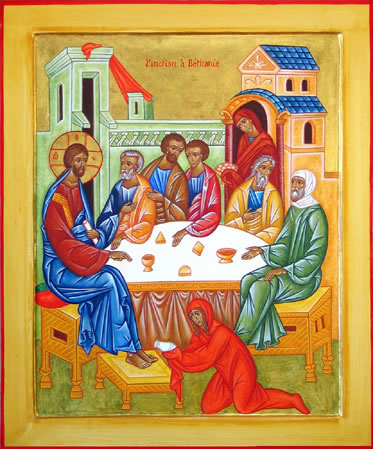Author, Elizabeth Stone, tech pioneer, Steve Jobs, and my mother are all quoted as saying, “Having a child is like choosing to let your heart walk outside your body for the rest of your life.” It seems Blessed Mary knew this reality all too well. It began on the night of Jesus’ birth as shepherds came rushing into the cattle stall where the holy family was attempting to rest, bursting with the good news they had received from angels who appeared in their fields with trumpet and song. Forty days later, Mary took the baby Jesus to the Temple for her ritual purification and to dedicate her first born son to the Lord God, when a man whom she had never met, took the child into his arms and declared him to be “the salvation of all people, a light to the Gentiles, and the glory of Israel,” even as he promised to Mary that a sword would pierce her soul as well. Less than two years after that, three wise men – magicians and priests from the East – came to visit Jesus armed with gifts of gold, suitable for a king, and frankincense and myrrh, symbols of death. Meanwhile, her husband, Joseph, had a dream in which he was told to flee his homeland and take his family to Egypt to protect them. After a while bouncing around the Egyptian countryside, and almost as quickly as they were told to leave, Mary, Joseph, and young Jesus were once again told to pack up everything and return to Israel. Instead of settling back in their old home in Judea, they made their way to Nazareth in order to protect their son from the powers-that-be who feared him and wanted him out of their lives. Later, at age twelve, Jesus scared Mary to death, having stayed behind in the Temple while the family caravanned back to Nazareth.
By the time we get to today’s Gospel lesson, Mary has already experienced a lifetime of worry over her son, whom she knew would be different since before he was even conceived. This morning, we encounter a now thirty-year-old Jesus who has been quite busy collecting disciples, preaching, teaching, healing, and casting out demons. Our lesson tells the story of Jesus’ first trip back home. Between the crowd that was following him around the Galilean countryside and the crowd of interested locals, so many people came out to see Jesus that he couldn’t even move his arms to stuff some hummus in his face. They were pressing in upon him so intensely that Mary began to fear for his life. Our translation, the New Revised Standard Version says that his family “went out to restrain him, for people were saying, ‘He has gone out of his mind.’” which is actually a pretty bad translation. What the Greek actually connotes is that his family came to grab him, and they told the crowds, “He has lost his mind.” One could write a whole book on Mark 3:21. There is double entendre aplenty in here. The word that the NRSV translates as “restrain” also means “to keep careful hold of.” The word often translated as “lost his mind” also means “amazed.” His family said that he was crazy, but did they really believe it? I can’t help but wonder if Mary saw all that was happening to her son and ran out to do whatever she could to save him.
There is no question in the text, on the other hand, about what the Scribes were up to. They had no intention of trying to protect Jesus from the masses. Instead, it seems they were dead set on stirring the crowd up into a frenzy. When you have the truth on your side, pound the facts. When you don’t, you pound the table and call people names. The Scribes didn’t ease their way into name calling either, but when straight for the jugular by calling him Satan. “He’s Beezebul! He’s able to cast out demons because he is the chief among them!” These are not the words of someone who came to engage in peaceful discussion. It is clear that what the Scribes were hoping would happen was that someone or some mob would rid them of this meddling rabbi, but Jesus knew his time had not yet come and was having none of this.
At its core, Jesus rejects the premise of the Scribes. A kingdom divided against itself cannot stand, how can Satan cast out Satan? It just doesn’t work. By way of a parable, Jesus does show that he believes that the powers of evil are strong, and that he sees his calling as the one who was sent to defeat Satan once and for all. The Father sent his only begotten son to tie up the powerful forces of Satan and to plunder the houses of evil – in empire, in business, in religion, and in families. Jesus is clear that the fight that had already begun between him and the forces of evil, a fight that started when he was only a child, will continue, but he already knows that he will win, and in so doing, he will redeem almost all people back into right relationship with God.
Almost all, and here’s where things get particularly tricky, because of this unforgivable sin business. “Whoever blasphemes against the Holy Spirit can never have forgiveness but is guilty of an eternal sin.” I don’t know about you, but anytime I hear this warning from Jesus, I find myself checking my receipts. Have I ever blasphemed the Holy Spirit? There was that one time in seminary, when we were all sharing at a class retreat, and I said, “sometimes I hate the Holy Spirit because I get called to do things that aren’t easy.” Is that unforgivable? I really hope not. Is Jesus talking to his family and the Scribes alike in this cryptic message? I don’t think so. Rather, I think the eternal sin that Jesus warns the crowd about is the sin of assuming you are right; the sin of an intractable spirit; the sin of arrogance. The Scribes, like so many who have come from positions of power and privilege over the centuries, simply assume that they are right, and Jesus is wrong. There is no willingness to listen, learn, or grow. Having been invited to receive the Holy Spirit as advocate and guide to God, they have said, “no thank you, we don’t need it.” There is no saving those who don’t think they need to be saved. Or, as Jesus says elsewhere, it is easier to get a camel through the eye of a needle than for a rich (powerful, privileged) person to enter the Kingdom of Heaven.
Those who approach the Kingdom of God with humility, who embrace the invitation to follow Jesus, no matter what sins or blasphemies they might stumble into, can find forgiveness because they seek it. Jesus’ family might not fully understand what he is up to, and they might let their worry overcome them from time to time, but they aren’t beyond redemption, and neither are you or me. All who are willing to lay down their pride and be challenged by following Jesus can have access to the Kingdom of God, and can even help, from time to time, plunder the houses of evil. Which is why we pray this morning that the God from whom all good proceeds, might grant us an open spirit to think what is right, and the Holy Spirit’s guidance to do so. It isn’t always easy to know what is right, but with a spirit of humility and a willingness to follow the leading of the Spirit, we can avoid becoming so sure of ourselves that there is no longer room for God in our own little kingdoms. When we are willing to allow the Spirit to help us think and do those things that are right, we are able to more fully follow the will of God, and, as promised by Jesus himself, have entrance into the family of Christ. In Creation, God chose to let God’s heart walk the earth for all of eternity. As children of God and members of the family of Christ, we are God’s heart in the world. We must be careful not to allow our hearts to become hard, but rather, to be open to the ways in which God’s love for the whole world will be poured out through each of us. Amen.



